Dispatch Is Here To Save Superhero Storytelling
Holding out for a hero
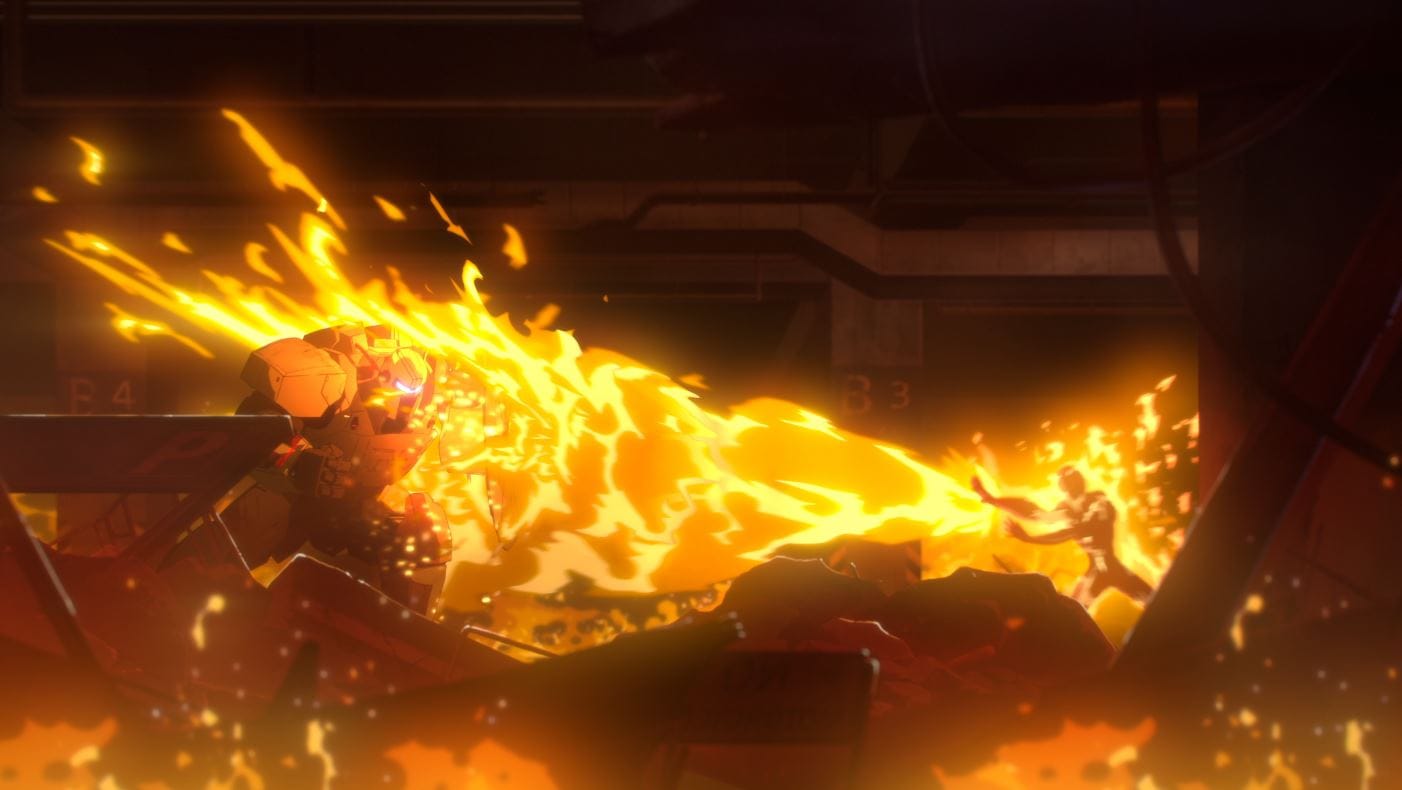
I first saw the trailer for Dispatch when it auto-played on my second monitor, and just from that tiny snippet, I was enraptured. This was quickly followed by a deep dive into "Dispatch" on Google, and I was hit by a three-punch combo that cemented it at the top of my most anticipated media list for 2025.
BIFF! It's actually a game! From its gorgeous visuals and phenomenal voice acting, I had assumed it was a movie or TV show.
POW! Not just any game, but a game made by a team of ex-Telltale Games executives and devs, now collectively known as AdHoc Studio!
WHAM! The cast behind its vocal talents is eclectic and elite, featuring Hollywood and veteran voice actors, as well as YouTubers, musicians, and comedians!
Source: Youtube
Naturally, when Dispatch's playable demo dropped during Steam's Next Fest, I was on it faster than Batman's fists on white makeup. Despite this being their inaugural offering, AdHoc has come up with a tantalising audiovisual canapé that has re-stimulated my appetite for cape fiction after "Superhero Fatigue".
The Super Narrative
Straight away, we're introduced to our hero–or rather ex-hero–Robert Robertson. Formerly the crime-fighter Mecha-Man, he's reduced to a mere man again when his suit is destroyed in an epic duel. He's offered a path back to heroship by the Superhero Dispatch Center, who promise to rebuild his suit in return for a stint as an office worker (as if he wasn't depressed and despondent already). Sentenced to a cubicle, he's tasked with coordinating a team of ex-criminal supers; sending them to save kittens, put out fires, and most importantly, shaping them into a functional Superhero team.
From the moment we get introduced to his team, their vivid personalities are on full display. The team's verbal duels and jibes reminded me of listening to casual conversation between party members in Baldur's Gate 3, a fan favourite feature of the award-winning game. The team riffs off each other so naturally, the chemistry and characterisation so strong, that I found myself compelled to replay the demo multiple times just to explore what other dialogue options were offered if I made different decisions.
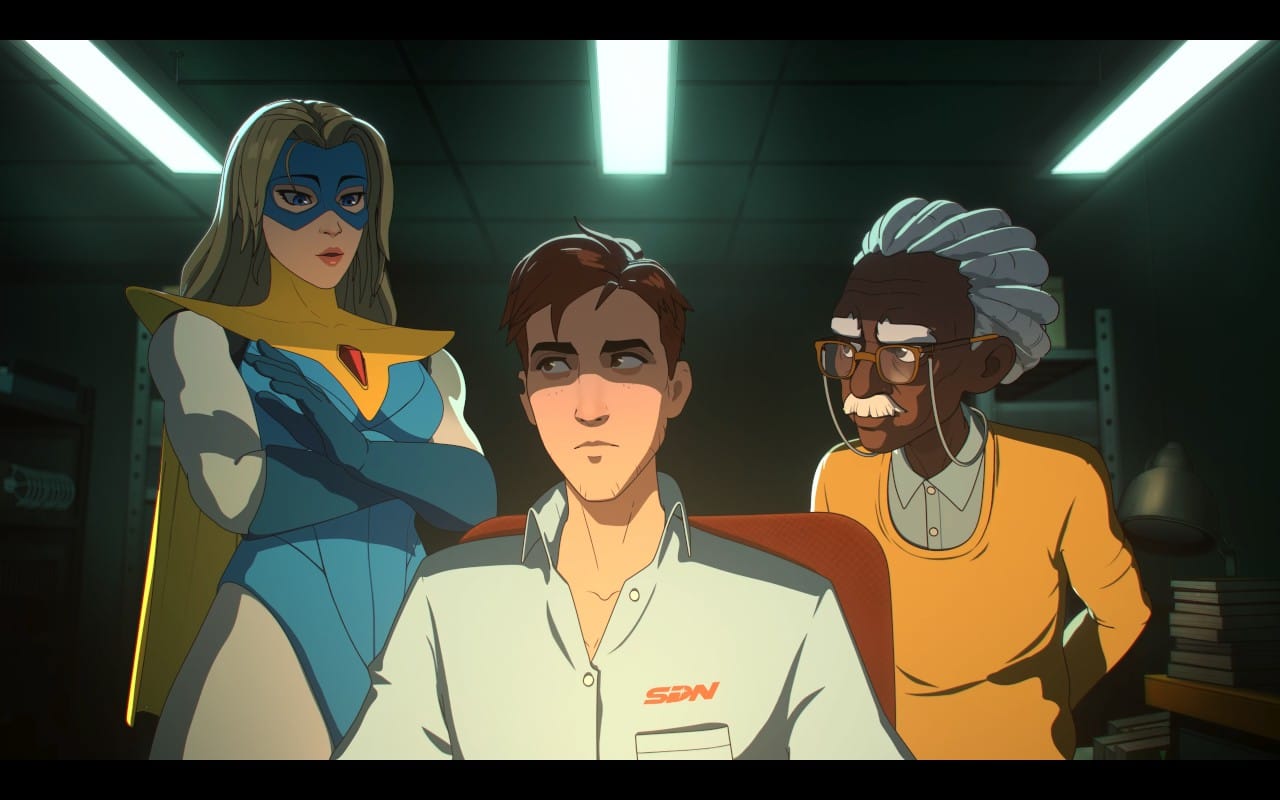
Robert himself embodies the despondent veteran trope, and we're teased with the very beginning of his development. The classic foible of his archetype is that it can get annoying pretty quickly; there's a thin line between snarky comments and forced one-liners, and it takes a mature pen to draft it. Fortunately, the ones holding this pen worked on The Wolf Among Us, and remoulded Bigby Wolf from an unfeeling sociopath in the Fable comics into one of gaming's most beloved grouchy protagonists.
Similar to Bigby and Snow, Robert's charm is unveiled through interactions with his supporting cast. In the few minutes we spend with Blonde Blazer and Chase, the embers of the camaraderie they once had still glow faintly. Watching Chase joke about resurrecting and then re-killing Robert's dad in front of him is somehow incredibly endearing, and really speaks to Adhoc's execution of the characters.
The writing wouldn't be half as memorable, though, without the talented performances by their voice actors. Robert's exasperation is delivered viscerally by Aaron Paul, which, honestly, shouldn't be surprising for anyone who followed his tenure as the beaten-down Jesse Pinkman in Breaking Bad. Similarly, the stern gravitas of Jeffrey Wright's tenor imbues longtime dispatcher Chase with authority. Despite the big-name actors, the rest of the characters hold their own as we hear the familiar tones of Matt Mercer, Laura Bailey, Erin Yvette, and Alanah Pearce. AdHoc was busy pillaging the Critical Role staffroom for this game, it seems. The surprise performances for me were Charles White Jr., aka YouTuber MoistCritikal, who was responsible for the monotonous quirkiness in Man-Bat homage Sonar, and the Irish accent of my childhood, Jacksepticeye, as the moustached muscle Punch Up.
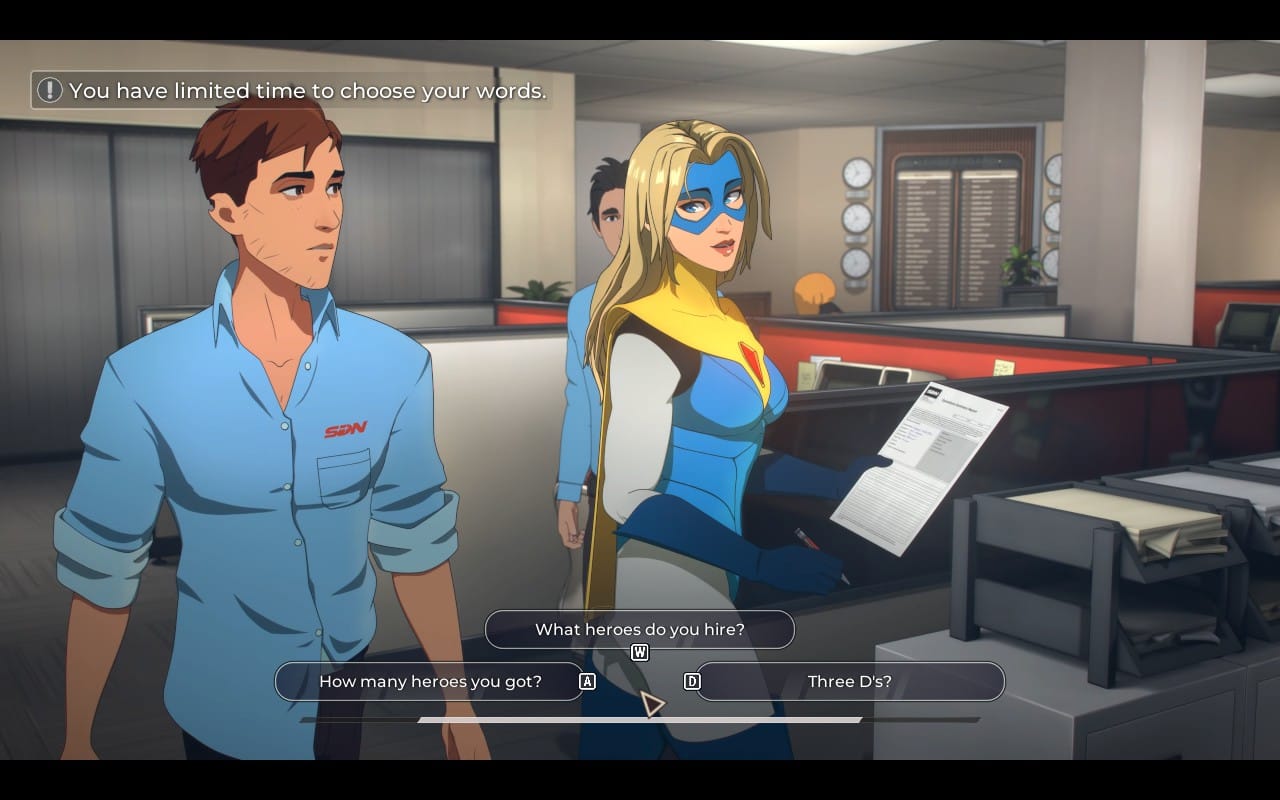
The recruitment of Hollywood actors has actually been telegraphed for a while. In an interview with Variety back in 2019, the Adhoc founders hinted at their goal of innovating on Telltale's interactive narrative formula and integrating it with live-action mediums.
“It feels like we’re at the precipice of a big shift in how we consume media where the lines between film, television and games are starting to blur,”- Pierre Shorette
Suddenly, mistaking Dispatch for a TV show seems like the highest compliment I could have paid it. The gorgeous visuals certainly helped, as the game looks the part of a big-budget Netflix production. The animations are smooth, gorgeous, and stylised, complementing the powerhouse vocal performances to create a very complete package.
In the same interview, AdHoc also talked about how they wanted to push the boundaries of the format. They mentioned Netflix's interactive narrative "Black Mirror: Bandersnatch" as an inspiration, which allowed people in the real world to influence the in-game story. I'm curious to see if any other innovations made it into Dispatch, because while the demo has a narrative television serial feel, it hasn't hinted at much else in terms of technological innovation.
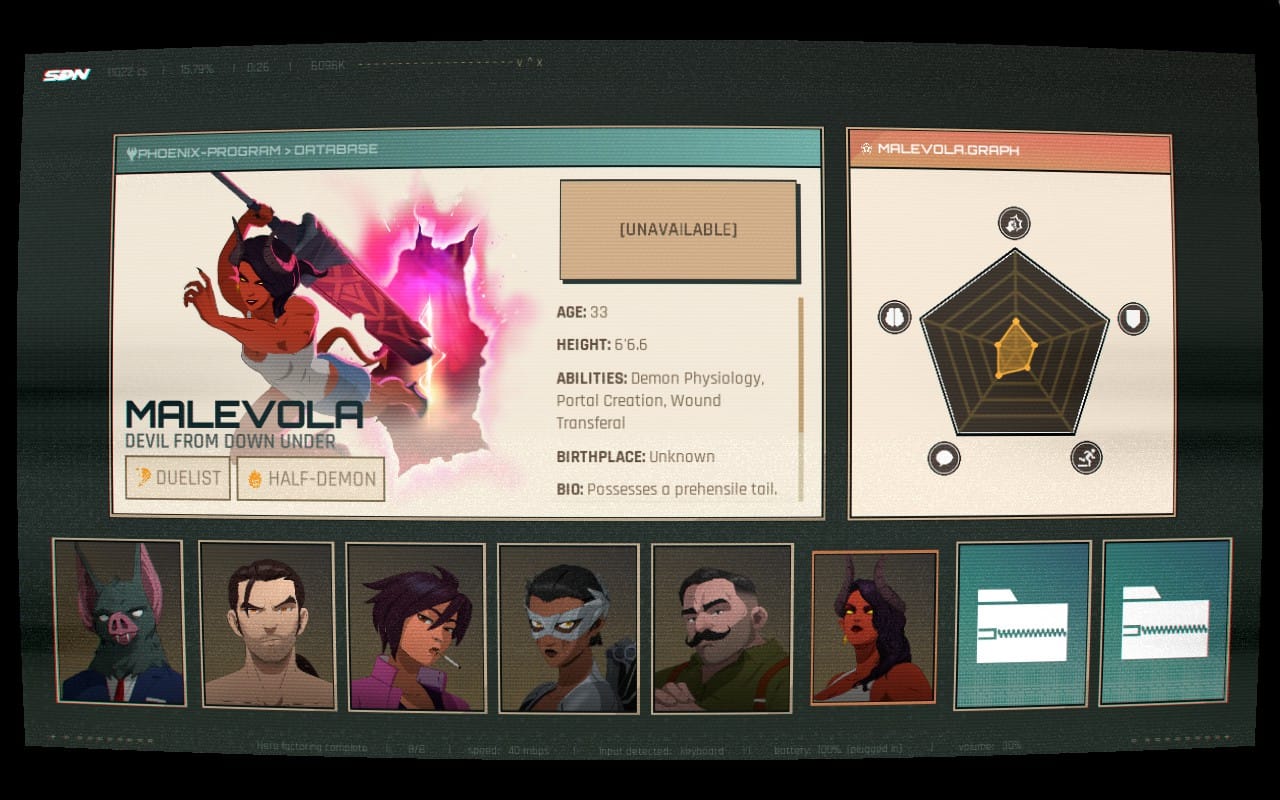
The Desk Job
Aside from innovating in form, the developers have also taken their subversive aspirations to the gameplay. Along with the classic cutscene and dialogue tree gameplay that have become synonymous with Telltale games, AdHoc has also introduced a worker management simulator. Surprisingly, it's one of the more engrossing ones I've played.
As disasters pop up around the city, you delegate a team member or members to put things back together. They spend time to get there, fix it, return, and then have a cooldown before they can go out again. Each disaster requires different stats, which are usually thematically related, so it's pretty instinctive which team member is required for each mission. Rescuing a child's pet from a tree should require agility and charisma, so don't send the lumbering clay monster and scar young Billy for life.
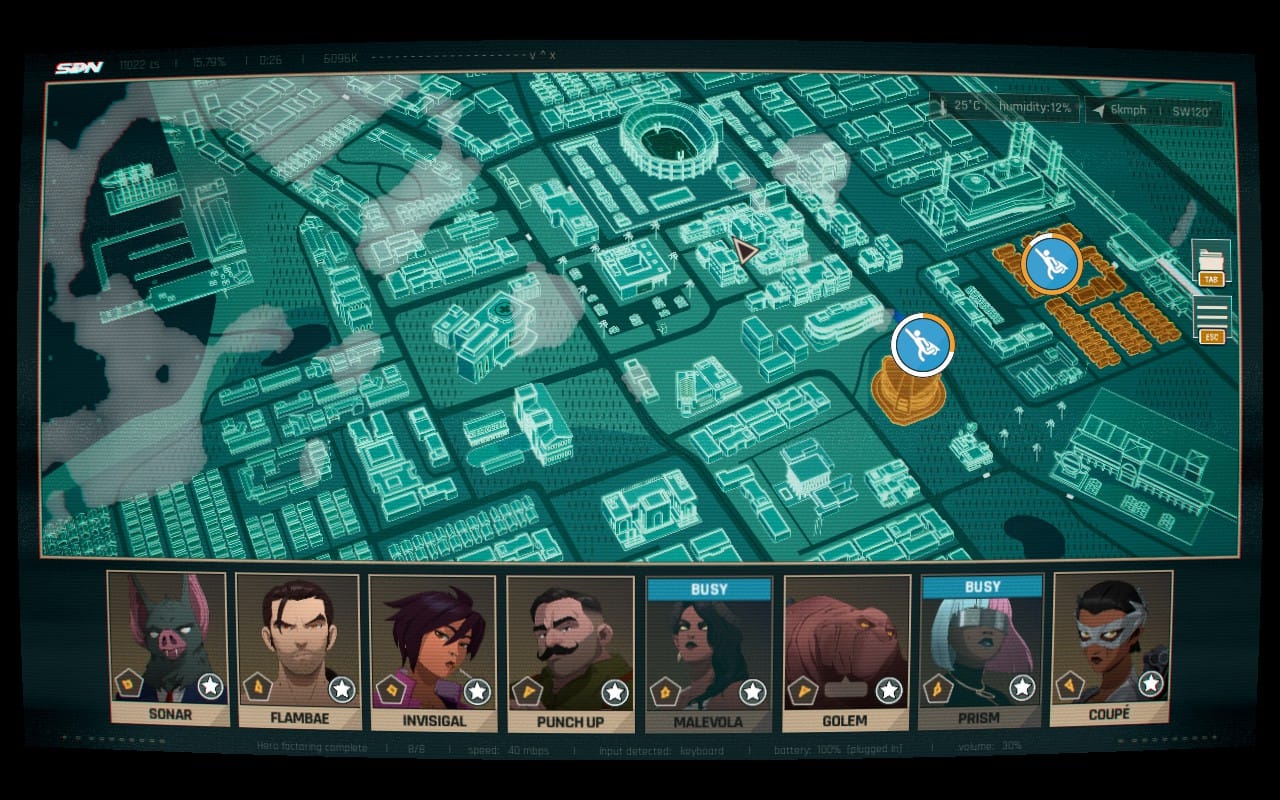
Doing missions also allows team members to level up, which creates some fun decision-making opportunities. Do you double down on your members' strengths so you have a team of specialists, or do you want to bolster their weaknesses for a squad of general operators? Team members even gain hidden perks after hitting certain levels, often involving their character or theme, which combines characterisation and gameplay in a fun way. The acerbic Invisigal, for example, unlocks a perk that allows her to be more efficient when deployed alone.
It's this integration of character and gameplay that I think really sunk the game's hooks into me. Dispatch's gameplay is great, but it's elevated because the game does such a great job investing you into the characters. Some of the missions are centered around specific characters, and it gives you the choice to make decisions that may have narrative ramifications. I was forced to choose whether or not to let Sonar go on a mission that would involve one of his scientific idols, knowing full well my choice may trigger the infamous "... will remember that" tag.
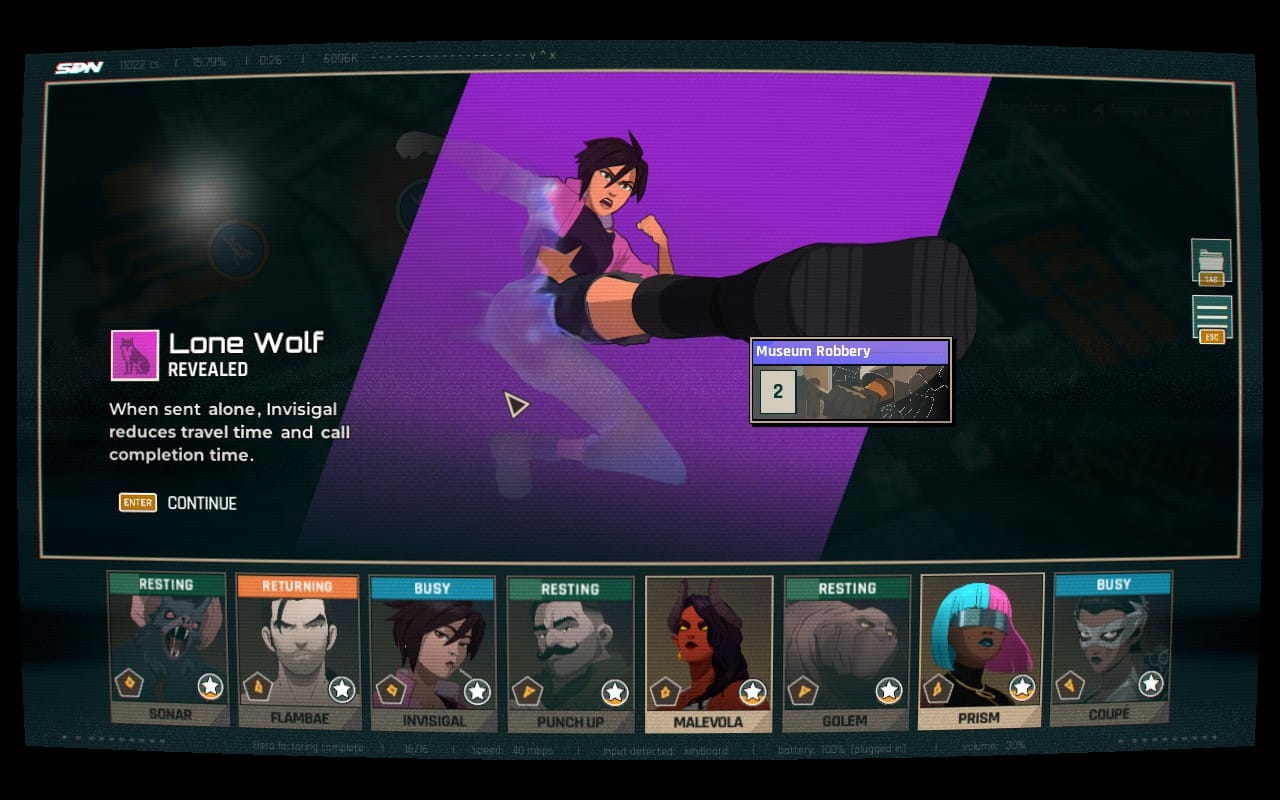
All in all, the Dispatch demo doesn't feel like a first game. It's refined, mature, and knows its strengths. The trailer writes big cheques, but the demo has delivered so far. The gameplay is fun, the characters are engrossing, and there's so much potential for the cast to develop. Despite being a sliver of the completed game, it oozes a creative confidence that all but compels you to wishlist it. Dispatch is almost too good to be true for anyone who sorely misses Telltale-style storytelling, but I've been converted, and I'm preaching the good word that episodic storytelling is back, in Cape-fic form!
We should've seen it coming, though, because nothing ever stays dead when it comes to superheroes.
